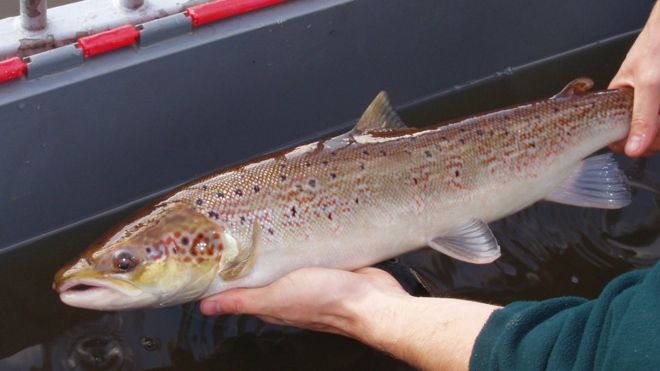Boost for Bats
The Bat Conservation Trust has released its latest "State of UK's Bats" report and generally it's good news(1). Of the UK's 18 resident species most are growing in number or are at least stable. Both the greater and lesser horseshoe bats are doing particularly well.
It's important to remember though that these figures have to be considered in context- there were major declines in bat populations during the 20th century due to human activity. Roost and habitat loss, disruption of insect food supplies, increased urbanisation and the spread of artificial lighting all had an impact and though conservation projects are really helping, bat numbers have not yet reached historic numbers.
Horrible for Hedgehogs
Similarly, the "State of Britain's Hedgehogs 2018" report was recently published but this was far less positive(2). It shows that since 2000, hedgehogs have fallen by about 50%.
The main reason for this, in rural areas at least, is the rise of intensive farming practices. Many farmers have removed hedges and copses to create larger fields, meaning there are fewer safe places and nesting sites for hedgehogs. Large-scale pesticide use is also reducing the amount of invertebrates which hedgehogs eat. Clearly this is not a good combination.
It looks like things are a little better in urban areas with numbers having levelled off. If you have hedgehogs in your area you can leave out wet dog or cat food to support their nutritional needs and ensure there are holes in your fences so that they can move from garden to garden.
Salmon's Secret
We recently saw how genetic testing of grass snakes showed how different our population is. Now it's genetic testing of salmon that has revealed surprises.
 |
| Photo by Sam Billington of the Environment Agency, via BBC News |
Chalk streams flow through chalk hills and generally have clear, slow-flowing water and are more alkaline than other rivers.
 |
| River Itchen |
Sorry Starlings
Hampshire County Council have come under fire recently for cutting down some trees near Winchester Fire Station where thousands of starlings were roosting(4). There has been a large murmuration of starlings in the city this year and many people have come to see them.
 |
| Starling Murmuration in Winchester by Roy Venkatesh via Hampshire Chronicle |
This is a really awful story because the council made a quick fix which destroyed a roost site for the starling and an important habitat for countless other species. They didn't consult the public and appear to have made no effort to have come up with a less drastic solution. Some people are saying it doesn't matter and that the starlings have moved elsewhere. But if every little conflict with nature was dealt with in such a dramatic way habitat loss would be even more severe than it is already.
Plastic Purge Continues
Last month I talked about how many companies were pledging to reduce the use of plastic packaging and this has contin
Lots of plastic ends up in the oceans having broken down into microscopic pieces known as 'microplastics'. It's thought that these have a huge impact all the way along the food chain from tiny plankton to larger animals like rays, sharks and whales. Scientists are calling for more studies to find out what impact microplastic have on these animals(7) though they suspect that effects might include reduced nutritional uptake and damage to the digestive system. There's also the possibility that toxin exposure from plastic ingestion could affect growth and reproduction.
Of course, that's far from the only threat to our oceans. A study has shown that in 2017 the oceans were by far the hottest ever recorded (records began in the 1950s) (8). Warmer oceans cause bleaching of coral reefs and the melting of ice shelves. The oceans are so delicate and we desperately need to do more to look after them.
Osprey
Last summer eight osprey chicks were translocated to Poole Harbour in the hope of creating a population there. All eight have migrated south for the winter but as they are ringed one has been spotted(9).
LS7 was seen on a long sandy island called, appropriately, Ile des Oiseaux in Saloum Delta National Park in Senegal. It's a popular spot for ospreys with 20 to 30 individuals regularly spotted there. They can fish in the rich, shallow delta and rest up happily on the island.
 |
| Ospreys on Ile des Oiseaux by Jon Wright |
That's all for now but there will be more Nature News towards the end of March.
1: BBC: Most bat species 'recovering or stable'
2: BBC: Hedgehog numbers 'down by half', warn wildlife groups
3: BBC: Genetic secret of English salmon
4: Hampshire Chronicle: Fury as Winchester Fire Station trees- used by city's much-loved starlings- cut down due to bird poo
5: The Guardian: Asda joins wave of supermarkets pledging to cut plastic waste
6: BBC: Queen backs plan to cut plastic use on royal estates
7: BBC: Plastic pollution: Scientists plea on threat to ocean giants
8: The Guardian: In 2017, oceans were by far the hottest ever recorded
9: Roy Dennis: LS7 seen in Senegal

No comments:
Post a Comment